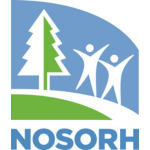By Beth Blevins
Human trafficking doesn’t just happen in big cities in the United States—it happens in rural areas as well. Lisa Davis, Director of the Pennsylvania Office of Rural Health (PORH), is working to bring more attention to this issue.
Davis said her interest in human trafficking came unexpectedly, at a presentation given at a Pennsylvania Critical Access Hospital Consortium meeting in November 2017. It was unclear if the topic resonated with the hospital leadership in the audience, she said. “But hospital CEOs came up to me after the meeting and told me they never knew that human trafficking was an issue in rural Pennsylvania or was something they should think about.”
Davis added, “It was clear that their facilities needed to be prepared to identify potential victims and to have systems in place to refer them for the services they would need.”
The administrators then asked if PORH could develop training programs for them. “PORH staff made a deliberate choice to train rural providers on the threat of human trafficking,” Davis said. “We know that we can be a resource for rural hospitals and other providers.”
Since the beginning of 2018, PORH has worked to address the issue in rural Pennsylvania. As a first step, a statewide committee of government, academic, community, and hospital representatives was organized. In November 2018, the group launched the Rural Human Trafficking Initiative with an introductory webinar targeting small rural hospitals, community-based organizations, and others interested in serving potential victims.
Since then, Davis said, “We continue to keep the hospitals informed—we’ve gotten a lot of interest from them.”
Davis also is reaching beyond Pennsylvania to raise awareness of rural human trafficking in other states. She gave a presentation in October 2018 at the Annual Meeting of the National Organization of State Offices of Rural Health (NOSORH) in Cheyenne, Wyoming. “It was the first time anyone had talked about that topic at NOSORH,” Davis said.
“I wanted to have NOSORH begin to think about how State Offices of Rural Health (SORHs) could address human trafficking with the Critical Access Hospitals, Rural Health Clinics, and Federally Qualified Health Clinics with which they work,” she said.
This summer, PORH and its partners will host a summit on rural human trafficking (June 26-27) in State College, Pennsylvania. “We are beginning to put in place some of the training programs that the hospitals can implement to identify point persons in their facilities, and the programs and connections that they need to address human trafficking,” Davis said.
Davis observed, “Human trafficking is often thought of as sexual exploitation but it’s also labor exploitation, which can occur essentially anywhere: in restaurants, domestic service, agricultural production, and more.”
Human trafficking is of special concern in Pennsylvania, Davis said, “because we are a state with two main cities and a number of interstate systems that traverse rural areas. With lots of travel routes into, out of, and through the state, it’s much easier to transport victims from one place to another.” According to the National Human Trafficking Hotline, there were 127 cases of human trafficking in Pennsylvania in 2018, with the majority of those cases sex trafficking.
As PORH staff became more informed about human trafficking, Davis said, they found a large network of individuals and organizations that have been focusing on the issue for a long time.
“We’ve made excellent contacts,” she said. “We’ve connected with Villanova University’s Commercial Sexual Exploitation Institute. We’ve been learning about coordinated efforts between the FBI and other law enforcement agencies to address human trafficking. And we’re working with the Region III offices of HHS and HRSA, which have an intergovernmental task force focused on human trafficking.”
However, she noted, “PORH is still very early in the learning stage and is committed to becoming a trusted resource for rural health care providers.”
Davis concluded, “Every story is heartbreaking and if we can make a difference in even one life, this effort will be well worth it.”
If you see someone who you think might be a human trafficking victim, contact the National Human Trafficking Hotline at 1-888-373-7888 (text to: 233733).
————————————————————————————
Does your SORH have a “Promising Practice”? We’re interested in the innovative, effective and valuable work that SORHs are doing. Contact Ashley Muninger to set up a short email or phone interview in which you can tell your story.
